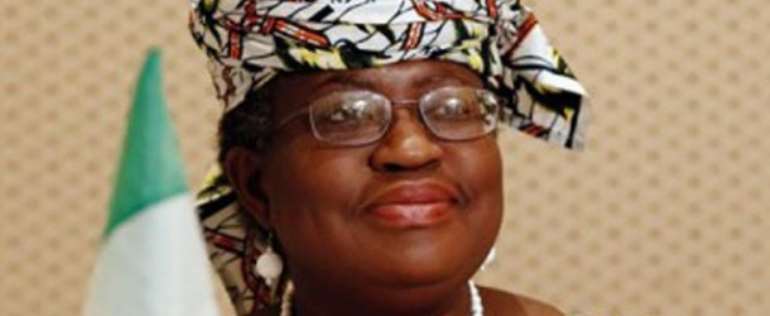Okonjo-Iweala: 2013, a turning point for Nigeria

The Coordinating Minister for the Economy and Minister of Finance, Dr. Ngozi Okonjo-Iweala, said that 2013 is going to be a game changer and a turning point for the country. The minister, who said this on the Christiane Amanpour current affairs programme, 'Amanpour' monitored on CNN Tuesday, said that the President Goodluck Jonathan administration was going to produce results this year, even as she pointed out: 'We are already producing results within the administration.' Okonjo-Iweala added: 'On the economic side, I just want to say that macroeconomic stability has been restored. Now, nobody should minimise that. 'Remember there were the lost two decades in Africa, in the 80s and 90s, where there was instability such that people could not focus on areas that could create jobs. 'Now things are turning right because we had growth of 6.5 per cent last year and we are projecting the same number this year, compared to the average five per cent in other African countries.' The minister however admitted the growth figure was intangible and could not be felt by the average Nigerian seeking employment and grappling with the challenges of insecurity and other vices in the country. 'But I just want to add that when you mention GDP growth in my country, people will immediately say you can't eat growth because we have challenges of unemployment, we need to create more jobs; we also have challenges of inclusion and there are problems of inequality, all those are challenges we face,' she said. She also called for the cooperation of the international community so that Nigeria could overcome the rising spate of oil theft. Okonjo-Iweala, who put the volume of oil stolen from the country daily at 150,000 barrels, expressed disappointment over the loss of revenue to the nation. According to the Finance minister, 'We are still a poor country, we cannot afford any leakage. Mexico and Nigeria have this problem but that of Mexico is much smaller. 'But we also need international community to get involved. We have international people who buy this stolen oil and we need them to treat it as stolen crude just like you do with blood diamonds so that those people don't have a market to sell the stolen oil.' Responding to a question on corruption, Okonjo-Iweala, who admitted that Nigeria does have a problem with corruption just like so many other countries, however noted that there are a lot of hardworking and honest Nigerians. 'I don't like the fact that when people mention Nigeria, the next thing they say is corruption. This is a country of 170 million people and 99.9 per cent of them are honest, hardworking citizens who just want to get on with their lives and they want a government that delivers for them. 'We lack institutions, we lack processes. What President Jonathan has done is to call the judiciary, legislature and executive for the first time and say this is not about government but about all of us. The judicial process has to be strengthened,' she added.
